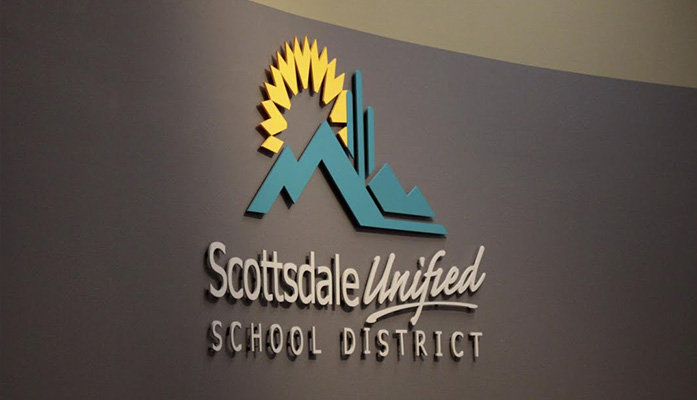
by Staff Reporter | Dec 1, 2024 | Education, News
By Staff Reporter |
Arizona State University (ASU) President Michael Crow may not be in outright support of President Donald Trump’s plan to end the Department of Education (ED), but he does seem to favor the idea of reform at the very least.
In Politico coverage gauging university presidents’ sentiments toward another Trump administration, Crow voiced a desire for an ED overhaul. Crow made the remarks during the annual Higher Education-News Media Dinner-Discussion at the University of Pennsylvania Club of New York City (Penn Club), which he hosted.
Crow said that ED student loans largely prove to be a waste of taxpayer dollars, since a majority of recipients don’t graduate.
“The Department of Education is a mismatch of bank feeds that have been cobbled together over 50 years of congressional history or more,” said Crow. “If you look at the United States and our success, we have almost three quarters of a trillion dollars being spent on Pell Grants in the last few decades, and more than half of those individuals have never graduated from college.”
Crow went on to say that the federal student loans weren’t having their intended effects — more citizens with a higher education that, in all likelihood, would strengthen the economy, depress poverty, spur innovation, and raise the education level (and welfare) of subsequent generations — since most borrowers weren’t getting their degrees.
“Most of the people that have loans supported by the government of the United States have no diplomas, no certificates, no degrees of any kind,” said Crow. “Clearly, something is not yet perfected and so what we need is new designs, new models, new ways of doing things.”
Trump vowed to abolish ED in a campaign promise made last year. The proposal was released as part of his “Agenda47” platform outlining his plan for his second and nonconsecutive term.
In his campaign promise, Trump said he would revert education authority and responsibilities to the states entirely. The president-elect explained the low education outcomes weren’t worth the high rates of federal spending and bureaucracy.
“And one other thing I’ll be doing very early in the administration is closing up the Department of Education in Washington D.C. and sending all education and education work and needs back to the States. We want them to run the education of our children, because they’ll do a much better job of it. You can’t do worse. We spend more money per pupil, by three times, than any other nation. And yet we’re absolutely at the bottom. We’re one of the worst. So you can’t do worse. We’re going to end education coming out of Washington D.C. We’re going to close it up — all those buildings all over the place and yet people that in many cases hate our children. We’re going to send it all back to the States.”
Under the late Democratic president Jimmy Carter, the U.S. founded the ED in 1980 through legislation splitting the Department of Health, Education, and Welfare into two: ED, and the Department of Health and Human Services.
ED received about four percent of the fiscal year 2024 budget, and its budget sits at around $240 billion. ED provides over $150 billion in new and consolidated loans annually.
ED has the smallest staff of the 15 Cabinet agencies, consisting of about 4,400 employees.
Those employees are split among 17 offices within the department: Federal Student Aid; Institute of Education Services; Office of the Chief Information Officer; Office of Communications and Outreach; Office for Civil Rights; Office of Career, Technical, and Adult Education; Office of the Deputy Secretary; Office of English Language Acquisition; Office of Elementary and Secondary Education; Office of Finance and Operations; Office of the General Counsel; Office of Legislation and Congressional Affairs; Office of Postsecondary Education; Office of Planning, Evaluation and Policy Development; Office of the Secretary; Office of Special Education and Rehabilitative Services; and Office of the Under Secretary.
South Dakota Senator Mike Rounds introduced a bill to abolish ED, the Returning Education to Our States Act. The bill proposed to shift certain programs to other departments.
AZ Free News is your #1 source for Arizona news and politics. You can send us news tips using this link.

by Staff Reporter | Dec 1, 2024 | Education, News
By Staff Reporter |
The National Education Association (NEA), a teachers’ union and the nation’s largest labor union, has continued its promotion of gender transitions for children.
NEA posted the guide by Advocates for Youth on Transgender Day of Remembrance last week. The guide was published last year.
The guide claims that humans are “assigned” their sex at birth based on reproductive traits (genitalia, chromosomes, and hormones), and that while everyone has a gender identity, only some align with their reproductive traits. The guide claims that children inherently know their gender identity as young as 18 months to three years.
Parents, per the guide, shouldn’t be the sole decision-makers about their children. Those parents that rely on information conflicting with or opposing transgender ideology are relying on “misinformation and falsehoods.” Instead, parents should accept information which affirms transgender, non-binary, and gender-expansive youth (TNGE).
“Parents have everything they need to begin the journey of supporting their TNGE children,” said the guide. “When making decisions for their children, many parents search for information and resources to support their efforts, but some of what is readily available is misinformation and falsehoods. Parents who are interested in seeking out additional help to support their TNGE children are encouraged to do so.”
As for the role of educators, the guide says that they should “proactively teach the entire school community about gender identity, gender expansiveness, and celebrate LGBTQ history and culture.”
The guide also says that schools should affirm students in their gender identity by using their chosen name and preferred pronouns, regardless of their legal name; ensure students have unencumbered access to their preferred gender-specific facilities such as bathrooms and locker rooms; and ensure students may participate in their preferred gender-specific extracurricular activities and athletics.
Per the guide, those who oppose transgender ideology, especially in children, qualify as “extremists” who put out disinformation.
The guide puts out a number of other contested claims, such as: puberty blockers are lifesaving, not harmful; LGBTQ ideologies contribute to healthy diversity; transgenderism isn’t a mental illness;
The NEA affiliate in Arizona — the Arizona Education Association (AEA) — has over 22,000 school employees as members (in addition to teachers, their members include librarians, custodians, cafeteria workers, and counselors).
Like the NEA, AEA has actively worked to foster transgenderism and advance other LGBTQ+ ideologies in minors.
AEA successfully advocated for the repeal of the 28-year-old “no promo homo” law prohibiting the discussion of homosexuality during HIV/AIDS instruction in schools. The law prohibited discussion that “promotes a homosexual lifestyle,” “portrays homosexuality as a positive alternative lifestyle,” and “suggests that some methods of sex are safe methods of homosexual sex.”
AEA also fought against legislative efforts to require the use of bathrooms based on biological sex, and prohibiting access based on gender identity.
The union also supported gender transitions for children as young as preschoolers, promoting a parent in 2017 who transitioned his four-year-old son into his “daughter.”
AZ Free News is your #1 source for Arizona news and politics. You can send us news tips using this link.

by Matthew Holloway | Nov 29, 2024 | Education, News
By Matthew Holloway |
The Goldwater Institute released a report on Tuesday detailing the shocking expenditures of the Tolleson Union High School District (TUHSD). According to the report, the district has blown a total of $76,969 “on what amounted to luxury vacations for school board members and administrators,” per public records obtained by Goldwater.
In the space of two days, the board reportedly shelled out $42,000 in hotel costs, $22,000 of which was for the catering. And this was all for just thirty people. The math works out to a brutal $700 per person, per day.
Christopher Thomas, Goldwater’s director of legal strategy for education policy, told AZFamily, “Those are monies that could have been spent on teacher salaries and educational programs for students.”
According to Goldwater, despite the public access requirements of the state of Arizona’s Open Meetings Law, these “Board and Administrator Retreats,” which act as long-form working meetings, are essentially hidden from the taxpayer. Furthermore, Goldwater reported that, “As a result of the noted board member absences, many of the meetings held during the $42,000 retreat in 2024 lacked even a board quorum (a majority of the five-member board), meaning that under the law, these were not lawful meetings of the board at all.”
Thomas explained that the retreats, “lacked transparency that’s required by the Open Meeting Law.”
Matters of great public interest were reportedly decided at these retreats, including strategies for improving student participation and graduation rates, student attendance rates and test scores, and budget priorities and academic goals, all away from public and parental oversight.
The costs revealed did not include transportation or the hourly pay of those involved, as many of them were effectively “clocked-in” during these “retreats.”
TUHSD reportedly indulged board members and administrators at two four star resorts in 2023 and 2024: the JW Marriott Starr Pass in Tucson and the Hilton Sedona Resort at Bell Rock. Notably, Goldwater observed that although records pertaining to these expenses were requested in July, they weren’t released until the middle of November… after new bond and a budget overrides were approved by Tolleson Union voters and a member of the governing board was safely re-elected.
At the JW Marriott Starr Pass in Tucson for the board’s two-day 2023 Board/Administrator Retreat, TUHSD reportedly paid $33,969 to the resort, which included $22,061 on catering. In 2024, the three day retreat at Hilton Sedona Resort at Bell Rock ran up a tab of $42,154 for 36 people.
“The leaders in this school district do not fundamentally understand that they are working with public dollars, and that every one of those public dollars has got to be spent in a way that gives the maximum benefit to the taxpayer and accomplishes their educational mission,” Thomas said.
Comparatively, as Goldwater Institute and AZ Free News previously reported, the Creighton Elementary School District’s Governing Board and Administrative Team attended a three-day, $4,000-per-person “diversity, equity, and inclusion” (DEI) conference at a Napa Valley wine country resort in July, which also drew heavy criticism of district leaders.
Matthew Holloway is a senior reporter for AZ Free News. Follow him on X for his latest stories, or email tips to Matthew@azfreenews.com.

by Matthew Holloway | Nov 26, 2024 | Education, News
By Matthew Holloway |
A Chandler High School alum and co-captain of Utah State University women’s volleyball team, Kaylie Ray, has reportedly joined a lawsuit with others players from the University of Wyoming, San Jose State University (SJSU), the University of Nevada, and Boise State University.
The group is suing the Mountain West Conference (MWC) and its commissioner, claiming that the conference compelled them to compete with a biological male ‘transgender’ athlete, “stealth-edited its rules to stifle their free speech,” and violated the federal Title IX law.
According to Cowboy State Daily, the lawsuit comes after a San Jose University student, Blaire Fleming, was added to the team as an outside hitter. Fleming, a biological male, is now ranked as the top hitter on the team.
The outlet reported that four schools, in addition to the University of Wyoming, have canceled matches against the SJSU team after outcry from players and university community members expressing concerns over fairness and safety of the female players.
In the text of the lawsuit, the plaintiffs allege that the conference drafted a new rule “hastily,” to mark the cancellations as forfeited losses.
Attorneys for the plaintiffs wrote, “The burgeoning controversy, which Commissioner Nevarez apparently believed could lead women’s volleyball players and teams to exercise their constitutional rights to protest and boycott, caused the commissioner and her staff to hastily draft and post on the MWC website a policy designed to penalize First Amendment protests supporting the rights of women’s volleyball players in the MWC.”
They add, “This new MWC policy was clearly intended to chill and suppress the free speech rights of women athletes in the MWC.”
The players are represented by Attorney Bill Bock and the Independent Council on Women’s Sports (ICONS), who filed the suit in the U.S. District Court for Colorado. Bock told reporters in a statement, “The NCAA, Mountain West Conference, university presidents and college athletic directors around the country are failing women. Because the administrators don’t have the courage to do their jobs, we must ask the federal courts to do their jobs for them.”
Teammates of the ‘transgender’ player are also claiming SJSU defrauded them because they joined the school and the team without prior knowledge that they would be playing with, boarding at times, and competing for scholarships against a biological male. The plaintiffs also argue that their rights under the First 14th Amendments to the U.S. Constitution were violated, the right to bodily privacy, discrimination, retaliation, and viewpoint discrimination among others.
Fleming became the subject of national attention in October when he spiked the ball during a match, striking SDSU junior Keira Herron in the face with brutal force and knocking the player to the floor. “Keira Herron has some pink in her hair and her face is starting to look like she’s matching that as obviously she took the contact,” a broadcast announcer said in the now viral video.
In the complaint, a player named Brooke Slusser “estimates that Fleming’s spikes were traveling upward of 80 mph, which was faster than she had ever seen a woman hit a volleyball.” The complaint goes on to explain that, “The girls were doing everything they could to dodge Fleming’s spikes but still could not fully protect themselves.”
Women’s sports activist and college swimmer Riley Gaines shared video of Fleming’s spike in a post to X, writing, “Male player from San Jose State @SanJoseStateVB, Blaire Fleming, leads his team to victory against Iowa @IowaVolleyball. Look how high he jumps. Look at the speed of the ball. Not only is this unfair, it’s dangerous.”
Matthew Holloway is a senior reporter for AZ Free News. Follow him on X for his latest stories, or email tips to Matthew@azfreenews.com.

by Matthew Holloway | Nov 21, 2024 | Education, News
By Matthew Holloway |
Dr. Owen Anderson of Arizona State University (ASU) reported earlier this week that an examination of the ASU course catalog for the Spring 2025 semester shows that the school does not offer any classes on Christianity. Although the website itself does list Anderson’s REL 270 course, he reports that it “didn’t have enough enrollment, so it was canceled.” He added, “Religious Studies blocked its general education requirements, so students would not be helped toward graduation.”
A course on the New Testament of the Bible is offered, however, it is an online course, which curiously does not require the Bible as a required text. Instead, it requires “How To Read the Bible,” by liberation theologian Harvey Cox, the 95-year-old former Hollis Professor of Divinity at Harvard Divinity School. According to U.S. Catholic, “Liberation theology is a social and political movement within the church that attempts to interpret the gospel of Jesus Christ through the lived experiences of oppressed people.”
In Cox’s text he wrote, “There is scarcely one figure in the entire Hebrew scripture we would want our children to emulate.”
In the same work, he also is quoted writing, “The dominant ethos of the twenty-first century consists of an intermingling of the sacred and the secular.”
Anderson added that the university contrasts this by offering seven different courses on magic and witchcraft.
In a post to X, Anderson said, “ASU has canceled its only Religious Studies course on Christianity for the Spring of 2025. You will find all of the other world’s religions taught at ASU, as well as a healthy representation of classes about witchcraft. ASU currently has more events about the benefits of witchcraft than it has courses on Christianity. What is going on? Why would any Christians want to study a humanities topic at ASU when this is how they are treated…”
In his post to Substack, Anderson noted that although Christianity is taught in the coursework of other classes, “Christianity does not get a dedicated class the way Islam, Hinduism, Buddhism, and Witchcraft do.”
The tenured professor argued that parents and students both need the ability to provide input on how the university’s schedule is built: “Parents and students, you need to know how the schedule is built and what classes you are filtered toward. It is a false choice. They give you the appearance of free will. ‘Do you want Buddhism or Witchcraft?’ Either way, you’ll be learning what they want, and you will not be represented.”
Responding to a commenter on X who was disappointed in the university’s decision, Dr. Anderson advised, “This one is done. But you can write an email to the Dean of the Religious studies department. I always recommend that such interactions be respectful.”
Matthew Holloway is a senior reporter for AZ Free News. Follow him on X for his latest stories, or email tips to Matthew@azfreenews.com.

by Staff Reporter | Nov 18, 2024 | Education, News
By Staff Reporter |
Scottsdale Unified School District (SUSD) will no longer be using X to stay engaged with the community, with the given reason being a lack of a “family-friendly” environment.
SUSD made the announcement last week, also alluding to board policy necessitating their ceasing the use of X. The district will remain on Facebook and Instagram instead.
“In line with board policy IJNDB and our commitment to safety, SUSD schools are stepping away from X to prioritize family-friendly engagement,” said SUSD. “For updates, find us on Facebook, Instagram, or visit http://susd.org. Let’s stay connected in spaces that uphold our values.”
IJNDB refers to policy on the use of technology resources in instruction. Per that policy, the district implements technology protections against visual depictions that are obscene, child pornography, or content which may be discerned as harmful to minors.
Yet, the district allows children access to sexually explicit books and content in its libraries and classrooms.
In stepping away from the use of X, the district also remarked that X failed to align with its values. In addition to protections for sexually explicit materials, SUSD holds values such as transgenderism in minors, social emotional learning, and critical race theory.
SUSD made their announcement a week after Election Day, when Donald Trump won the presidency and Republicans secured a trifecta.
Tech billionaire and Tesla CEO Elon Musk bought Twitter (now X) for the express purpose of preserving and supporting free speech following the 2020 election. During that election, the silencing of certain right-wing voices occurred under social media platforms such as Twitter and Big Tech companies.
SUSD lost nearly 500 students over the course of this past year, amounting to millions in lost revenue. The auditor general has scored the district as “high risk” due to its continued decline in enrollment. Enrollment has declined 10 percent under the tenure of SUSD Superintendent Scott Menzel, and reports have emerged of record staff turnover.
Additionally, SUSD spending on classrooms and teachers have hit another historical low for this school year: 54 percent versus nearly 64 percent from 20 years ago, just over the lowest fiscal year (2017, which amounted to 53 percent).
Parent watchdog group Scottsdale Unites for Education Integrity said the nine percent decrease signified a $40 million redirection of funds from academic achievement.
Menzel also enjoyed a pay raise earlier this semester despite falling short of academic performance goals: achievements in math, English-Language Arts (ELA), and science fell below desired outcomes. Over 8,000 students weren’t proficient in ELA, over 9,000 weren’t proficient in math, and over 12,000 weren’t proficient in science.
The only goals which Menzel accomplished were nonacademic, and they amounted to less than half of the goals set: increases in attendance rates, student participation in extracurricular and cocurricular activities, and certified staff retention; an establishment of a baseline for work-based learning opportunities and hours completed using Major Clarity; and production of a decision-making matrix and at least one proposal for action by June.
AZ Free News is your #1 source for Arizona news and politics. You can send us news tips using this link.






